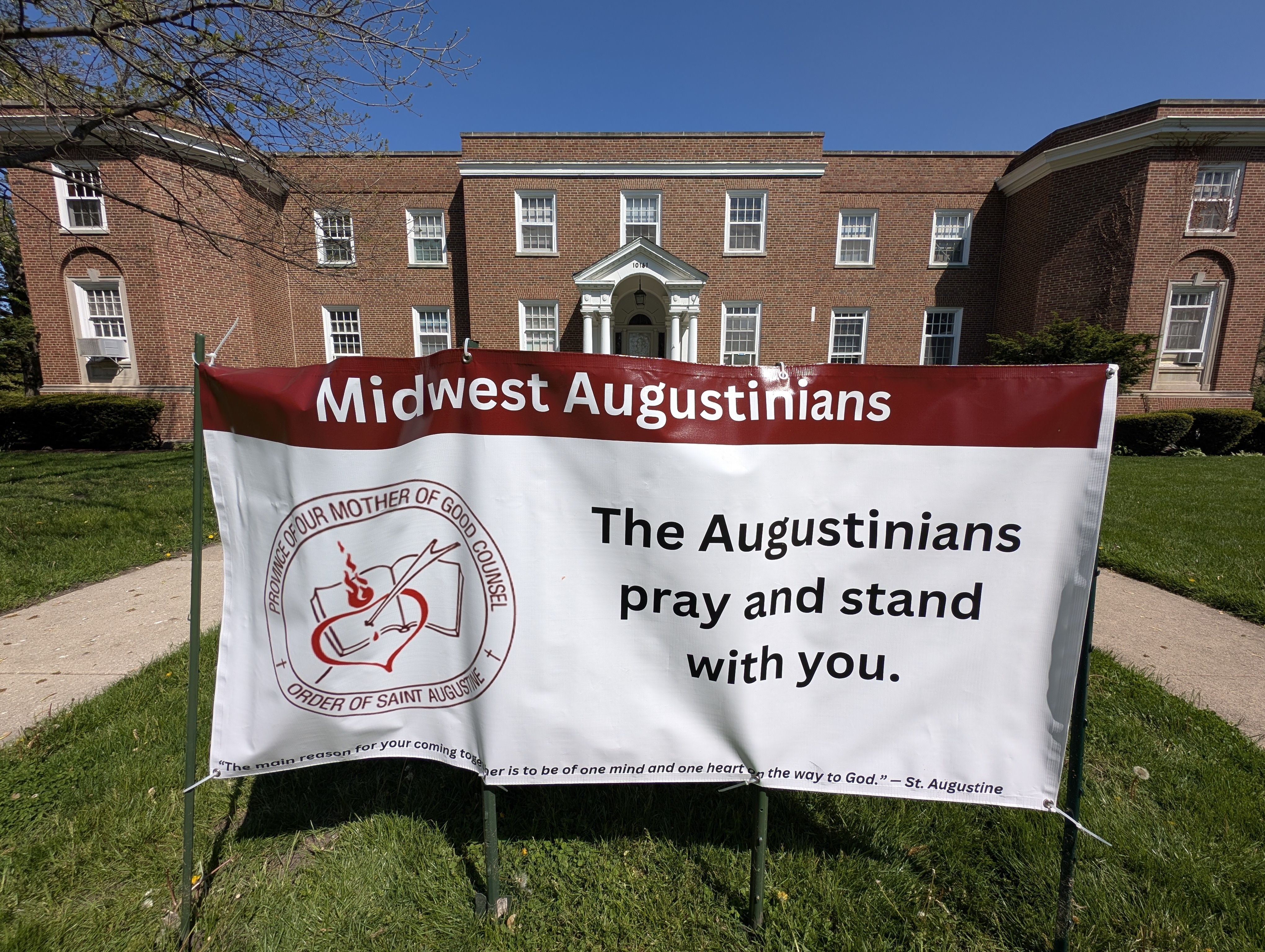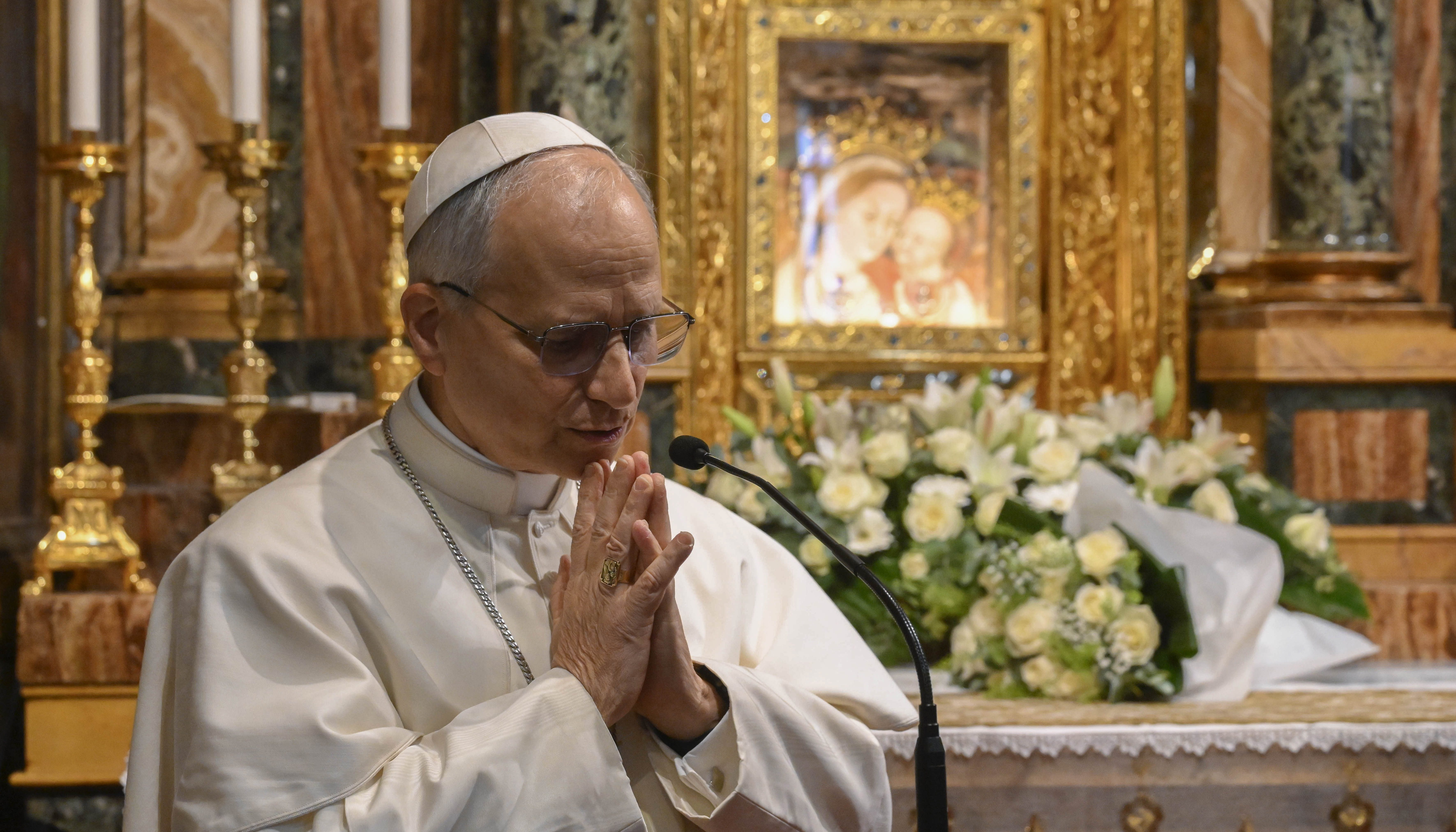Order of St. Augustine: History, Values, and Pope Leo XIV
Unveiling the Order of St. Augustine: Following in Pope Leo XIV's Footsteps
Introduction: More Than Just a Religious Order
Ever wondered about the different orders within the Catholic Church? They're like specialized units, each with its own unique history, focus, and way of life. Today, we're diving deep into the fascinating world of the Order of St. Augustine, an order that boasts a history spanning centuries and, perhaps surprisingly, counts the newly named Pope Leo XIV, formerly Cardinal Robert Prevost, among its ranks. So, buckle up as we uncover the secrets of this influential order!
Who Was St. Augustine and Why Does He Matter?
Let's start with the man himself: St. Augustine of Hippo. Born in the 4th century, Augustine was a philosopher and theologian whose writings have profoundly shaped Western thought and Christian doctrine. He's considered one of the most important Church Fathers. But what makes him so special?
Augustine's Transformation: A Life of Reflection and Faith
Augustine's own life was a dramatic journey, filled with intellectual searching, personal struggles, and ultimately, a profound conversion. He wasn't always the saint we know today! His experiences, eloquently chronicled in his autobiography, *Confessions*, offer a raw and honest account of his spiritual awakening. He eventually became a bishop and his writings provided frameworks for Christian theology that have lasted for centuries.
The Birth of the Order: A Community Inspired by Augustine
Fast forward to the 13th century, and we find the seeds of the Order of St. Augustine being sown. Inspired by Augustine's teachings and his emphasis on community and shared life, several groups of hermits in Italy began to coalesce. Was it simply a coincidence? I think not. It was Providence at work!
Mendicant Friars: Embracing Poverty and Service
The Order of St. Augustine is a mendicant order. But what does "mendicant" even mean? It means they rely on the charity of others for their sustenance. This commitment to poverty is a key characteristic, signifying their dedication to a simple life focused on service and evangelization. Their commitment to simplicity underscores their dedication to spiritual pursuits.
The Augustinian Rule: Living "With One Mind and One Heart"
At the heart of the Order lies the Augustinian Rule, a set of guidelines for community life. It emphasizes unity, charity, and a common pursuit of God. It states members should "live together in harmony, being of one mind and one heart on the way to God."
Harmony and Unity: The Cornerstones of Augustinian Life
Imagine a group of people striving to live in perfect harmony, supporting each other on their spiritual journeys. That's the ideal the Augustinian Rule aims to create. It's not always easy, of course, but the emphasis on unity and shared purpose is what defines the Augustinian community.
The Augustinian Ethos: Contemplation, Community, and Service
The Order of St. Augustine emphasizes three core values: contemplative spirituality, communal living, and service to others. These pillars inform everything they do.
Contemplative Spirituality: Finding God in the Silence
Augustinians place a high value on prayer, reflection, and seeking God in the silence of their hearts. This contemplative dimension nourishes their souls and empowers them for service. Isn't it amazing how much can be revealed when we quiet our minds?
Communal Living: Sharing Life and Supporting One Another
Living together in community provides Augustinians with a network of support, encouragement, and accountability. They share their joys and sorrows, challenges and triumphs, strengthening one another in their faith. Think of it as a spiritual family.
Service to Others: Putting Faith into Action
Augustinians are actively involved in various ministries, including education, pastoral care, social justice, and missionary work. They strive to embody Augustine's teachings by serving the needs of the poor, the marginalized, and those seeking guidance. It's not enough to just talk the talk; you have to walk the walk.
The Order's Global Presence: Spreading Augustine's Message Worldwide
The Order of St. Augustine is a global community, with a presence in about 50 countries. From bustling cities to remote villages, Augustinians are working to spread Augustine's message of love, truth, and service.
Pope Leo XIV: An Augustinian Leading the Church
The appointment of Cardinal Robert Prevost, now Pope Leo XIV, as the head of the Catholic Church marks a significant moment for the Augustinian Order. It underscores the influence and relevance of Augustinian spirituality in the modern world.
Prior General: Leading the Augustinian Family
Before becoming Pope, Robert Prevost served as the prior general of the Order, essentially the leader of the entire Augustinian family. This experience has undoubtedly shaped his perspective and prepared him for the challenges and opportunities that lie ahead.
Augustinian Contributions to Society: More Than Just Religion
The Order of St. Augustine has made significant contributions to society in various fields, including education, art, and intellectual thought. Many Augustinian schools and universities have been established throughout the world, fostering a love of learning and critical thinking.
Religious Orders: A Diverse Landscape within Catholicism
It's important to remember that the Order of St. Augustine is just one of many religious orders within the Catholic Church. Each order has its own charism, its own specific focus, and its own unique way of contributing to the Church's mission. Religious orders aren't just for priests, nuns, or monks; lay people can participate as well.
Joining the Order: A Path of Dedication and Service
For those feeling called to a life of prayer, community, and service, joining the Order of St. Augustine may be a path worth exploring. The process typically involves a period of discernment, formation, and commitment. Are you being called to something greater?
The Enduring Legacy of St. Augustine and His Followers
The Order of St. Augustine continues to thrive, carrying on the legacy of its namesake and adapting to the needs of a changing world. Their commitment to contemplative spirituality, communal living, and service to others serves as a beacon of hope and inspiration for countless people around the globe. Their impact extends far beyond their order. What about you? How can you live your life with the same Augustinian spirit?
Conclusion: A Legacy of Faith, Community, and Service
The Order of St. Augustine, inspired by the teachings and example of St. Augustine of Hippo, is a vibrant and influential force within the Catholic Church. From its humble beginnings to its global presence, the Order has consistently embodied its core values of contemplative spirituality, communal living, and service to others. With the election of Pope Leo XIV, an Augustinian, the Order's influence is poised to grow even further, continuing to shape the spiritual landscape for generations to come.
Frequently Asked Questions
Here are some frequently asked questions about the Order of St. Augustine:
-
What is the main difference between the Order of St. Augustine and other religious orders?
The Order of St. Augustine uniquely combines contemplative spirituality, communal living, and active service, drawing inspiration directly from St. Augustine's own writings and life. -
Do you have to be a priest to join the Order of St. Augustine?
No, the Order includes priests, brothers, and lay people who all share in the Augustinian charism and way of life. -
What kind of work do Augustinians do?
Augustinians are involved in diverse ministries, including education, pastoral care, social justice initiatives, missionary work, and promoting peace and reconciliation. -
How can I learn more about St. Augustine?
Reading St. Augustine's "Confessions" is an excellent starting point, as it provides a deeply personal and insightful look into his life and spiritual journey. You can also find numerous biographies and commentaries on his works. -
How can I support the work of the Order of St. Augustine?
You can support the Order through prayer, volunteering your time, or making a financial donation to support their various ministries and initiatives.

